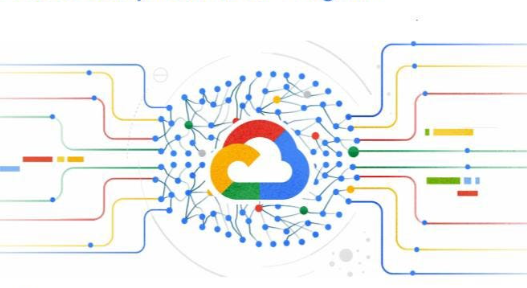Table of Contents
Introduction GCP Networking
GCP Networking
Google Cloud Platform offers various tools and services for networking that make your application more scalable, secure, high availability, global reach etc. If you are preparing for GCP, AWS, Azure or any other cloud platform you should know very well about the Networking concepts. In this article, we will learn the most essential concepts of GCP networking tools and Services to help you become proficient in cloud networking and advance your cloud computing journey.

Virtual Private Cloud (VPC)
VPC is the most crucial concept in GCP Networking, The Virtual Private Network is a logical space where you can store your resources within an isolated environment. Key points to understand VPC include:
Global Scope
GCP VPCs have a global scope, meaning that the Virtual Private Cloud spans different regions so that you can create your resources in different regions while keeping them securely connected.
Subnetting
Subnets are used to control your traffic flow between different IP address ranges. In simple terms, VPC enables you to create many subnets, subnets are IP address ranges within specific regions. Subnet segment your resources and control traffic flow.
Firewalls and Security Rules
GCP, Google Cloud Platform provide strong capabilities of firewalls, that enable you to manage outgoing and incoming traffic on your site. Firewalls Security Rules decide which type of traffic is allowed or which is not allowed. Key points of GCP Firewall and Security Rules:
Default Deny
GCP follows the “default-deny-all” approach, this approach makes by default deny all requests. This means GCP denied all requests either http or https we have to enable which type of traffic we want on the application. This enhances security because only approved traffic is allowed.
Tags and Services Accounts
In GCP, the firewall rule can apply based on the instances’s tags and service account identity. This provides granular control, by which you can control communication flow between two instances. Tags and service accounts help define precise rules to manage and secure traffic.
Load Balancing
GCP provides various options for load balancing to ensure high availability and efficiently manage incoming traffic. Key points of Load balancing in GCP include:
HTTP(S) Load Balancing
HTTP(s) is the best option for web applications, it distributes HTTP and HTTPS traffic globally and offers different features like SSL termination and content-based routing.
Network Load Balancing
Network Load Balancing is used for TCP/UDP traffic, and provides low latency and high availability with global load balancing.
Internal Load Balancing
Used for distributing traffic within a VPC, ensuring highly available internal services
Cloud Interconnect
Cloud Interconnect allows you to make connections between your on-premises data centre and GCP through dedicated network connections. Key points of Cloud Interconnect:
Dedicated or Partner Interconnect
Dedicated lines are directly connected with the GCP and Partner lines take the help of a third-party network to connect with the GCP. You can choose between the Dedicated line or Partner line as per your requirements.
High-speed and low-latency
Cloud interconnect provides a high-speed and low-latency connection between the on-premises data centre and GCP. Cloud interconnect improving performance for hybrid cloud setup.
VPN (Virtual Private Network)
VPN allows you to connect GCP VPC’s connection with your on-premises data centre, through the public internet connection. Some key points of VPN:
Site-to-Site and Remote Access
GCP VPN supports both the Site-to-SIte and Remote Access VPNs, to cater to various networking requirements.
IPsec Encryption
IPsec Encryption is most important to make data secure during the transmission of on-premises data to GCP VPCs. IPsec ensures that data is encrypted when it’s transferring between on-premises to GCP VPCs.
Cloud DNS
GCP’s Cloud DNS service enables you to manage domain name resolution in a reliable and scalable way. Key points of GCP’s Cloud DNS:
Global Availability
Cloud DNS maintains a global presence, which means it offers low-latency DNS resolution for your resources. This entails utilizing nearby servers for your domain name resolution to provide fast response to your users.
Integration
It seamlessly integrates with other GCP services and can be used to map custom domains to GCP resources.
Conclusion: GCP Networking
Understanding Google Cloud Platform (GCP) networking concepts is crucial for harnessing the full potential of GCP. Whether you are building a web application, deploying a hybrid cloud solution, or managing network security, a strong understanding of GCP networking will assist you in designing, deploying, and maintaining secure and efficient cloud infrastructure. Explore GCP’s documentation, take advantage of hands-on labs, and follow best practices to further enhance your knowledge of GCP networking.
In this way, by comprehending GCP’s networking concepts, you can progress in your cloud computing journey and make better use of GCP’s powerful tools and services.


Leave a Reply